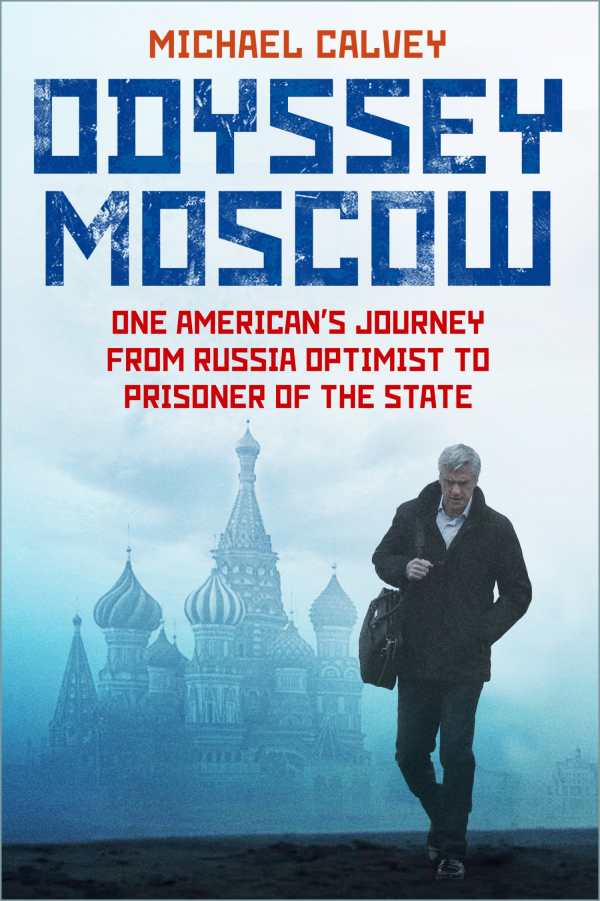
Odyssey Moscow
One American's Journey from Russia Optimist to Prisoner of the State
Questions about the nature of justice, complicity, and where optimism ends arise in Odyssey Moscow, a memoir about being persecuted by the Russian state.
American investor Michael Calvey’s revelatory memoir Odyssey Moscow transforms a harrowing personal ordeal into a story about injustice, resilience, and contested power in modern Russia.
Calvey founded a leading Moscow-based wealth fund and spent years building a life in Russia. He became fluent in the language and forged relationships with cosmonauts, ministers, and billionaires. This book recounts his fall from high-level financier to inmate in the notorious Matrosskaya Tishina prison following his 2019 arrest. That fall, attributed to power grabs by oligarchs, began with a cinematic predawn raid on his Moscow apartment. After this scene, the book proceeds in the manner of a journal, recording events including Calvey’s trial, house arrest, and the aftermath.
Without the inclusion of official documents, the book relies on Calvey’s memory and impressions to direct its progression. It references media coverage and Central Bank audits in sparing, summary terms, focusing on subjectivity. Rather than seeking to prove Calvey’s innocence, it works instead to reveal his experiences. Asides to cover his upbringing and personal life with his wife and children flesh out his perspective somewhat.
The chapters mirror the physical, emotional, and spiritual stages of containment, documenting indignities in direct, unsentimental, procedural language. Calvey’s mental state through the ideal is underaddressed, but privations are implied: He makes note of the cold steel of transport vans, oatmeal with the texture of paste, and fluorescent lights that never dim. The tension lies in the flatness of the descriptions, which allow the absurdity and horror to speak for themselves. But repetition undermines this presentation somewhat, as with the motif of the bland cruelty of bureaucracy: An investigator is casual about insinuating child abuse based on an old family photograph; a solemn judge rubber-stamps every FSB recommendation.
Though it reflects on privilege, national identity, and the differences between the rule of law and rule by law, the book exhibits reticence to outright criticize the Russian judicial system. Still, Calvey’s story is treated as one example among many, reflecting wider institutional patterns of state powers proving impervious to sense, the law, and overwhelming evidence of people’s innocence. Questions about the nature of justice, complicity, and where optimism ends emerge without clear answers. Instead, the book extends an invitation to sit in the discomfort of such questions. Its final chapters focus on repair instead of vengeance, reflecting humility and meditating on hope and the human capacity to endure as Calvey recounts returning to life with his family.
Marked by guarded optimism, the reflective memoir Odyssey Moscow is about the slow, quiet violence of intractable institutions and the stamina required to outlast them.
Reviewed by
pine breaks
Disclosure: This article is not an endorsement, but a review. The publisher of this book provided free copies of the book and paid a small fee to have their book reviewed by a professional reviewer. Foreword Reviews and Clarion Reviews make no guarantee that the publisher will receive a positive review. Foreword Magazine, Inc. is disclosing this in accordance with the Federal Trade Commission’s 16 CFR, Part 255.
